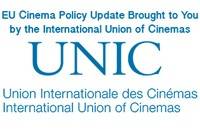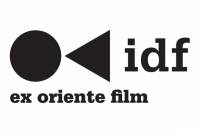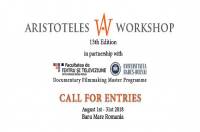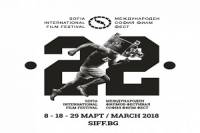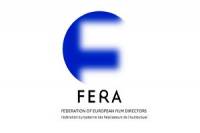WARSAW: FNE has teamed up with the Brussels based team of the International Union of Cinemas (UNIC) to bring you regular updates on EU cinema policies that impact all industry professionals across Europe. Click here for FNE UNIC EU Cinema Policy Update.
LJUBLJANA: Teaching European History through Cinema (TEHC), a film education programme using European films as a tool for learning history, will be implemented in 2018 in Slovenia, Bulgaria and Romania alongside Italy, which initiated it.
TBILISI: The shooting for a new Indian film directed by Dr Anil Viswanath and starring Southern Indian stars Naveen Chandra and Shalini Vadnikatti wrapped in Georgia in March 2018.
These grants were announced by the Czech Film Fund on 22 March 2018.
Learn About Film Marketing from an Expert Working with Disney, Universal and 20th Century Fox
Festivals 23-03-2018
On March 27–29, film industry professionals from Lithuania and all of Europe will focus their attention on the international industry conference Meeting Point – Vilnius. Lectures, Coming Soon sessions, and private film screenings are just some of the events planned for the three-day conference.
This year’s conference will include a presentation on film marketing from Christian Have, one of the leading voices on arts and culture in Denmark. As the Creative Director of Have Communications, which he founded in 1983, he has worked with celebrated artists and world-renowned stars. His agency’s list of clients includes Disney, Universal (Universal Music Group), European Film Academy, 20th Century Fox and other film companies.
Christian Have’s presentation at Meeting Point – Vilnius is introduced by the Embassy of Denmark in Lithuania and the Danish Cultural Institute in Estonia, Latvia and Lithuania.
Mr. Have, you have been working in the culture and arts field since 1983. You are the author of eight books, communication futurology expert, film marketing specialist. Could you tell us about the most remarkable cinema-related projects you remember?
– The first that comes to mind is Gabriel Axel’s Babette’s Feast from 1987. I had the honor of being part of the process from a very early stage – when the script was still being developed. The film featured a lot of completely unknown actors, so we applied a unique food theme for its launch, which was a pretty original approach. The film was shown at Cannes, and it ended up being the first Danish Oscar winner ever. I’ve had the pleasure of working with the promotion of the only other two Danish movies that have won Oscars in the Best Foreign Language Film category – Bille August’s Pelle the Conqueror from 1988 and Susanne Bier’s In A Better World from 2010 – and both of these were of course remarkable experiences, too.
Your communication agency’s client list includes such big names as Disney, Universal, Zentropa Productions, 20th Century Fox. Could arthouse cinema with smaller promotion budgets learn anything from these companies’ productions?
– Whether you’re Universal or an arthouse production company, the same basic rules of storytelling apply. It’s all about telling a story that excites and engages your audience – and your budget does not limit how good a story you’re able to tell. The budget only affects how far and easily you can distribute it. So, when you have fewer resources, you have to prioritize your efforts. One thing that smaller production companies can learn from the American giants, however, is how to make use of content marketing and how to really engage audiences on social media. They are generally really good at that, and there’s a lot we can be inspired by and apply in countries like Denmark and Lithuania.
Is there a big difference in how and by which means to promote high-budget and low-budget movies? If so, what measures or techniques are crucial for the promotion strategies for both types of movies?
– Again, having a smaller budget should not affect your ability to tell a really good story. But of course, it increases the importance of truly having a great story to tell – and that you’re telling it in the best way possible. In some ways, however, there is an advantage to having a small budget, because with the promotion of high-budget movies, people tend to stick to what they always do. With low-budget movies, you are freer to do whatever you want. Also, there is a huge market for movies and filmmakers that are brave and unpredictable, and this is definitely to the advantage of low-budget movies.
Denmark in its size is like Lithuania, but the Danish film industry is much more remarkable and competitive in the global cinema market. What successful steps, in your opinion, where made in Danish culture policy to achieve such a result?
– In Denmark, it is a public priority that the Danish film industry should produce films of the highest international quality, so the field is generally met with a lot of support and has a sizable amount of public funds to distribute. Through the Danish Film Institute, the subsidies are distributed to a wide variety of productions and projects, including fiction and non-fiction, script and talent development, marketing and partnerships, regional support and support for international co-productions – and so on. The arm’s length principle is all-important, as it helps ensure artistic freedom and harmonious collaborations between public and private partners in the film industry.
How do you see the change happening in film promotion tools? And what would be your predictions for viewer behaviour in the future? Will people stop watching films in cinemas?
– Of course digitization, streaming and social media affect how films are marketed and experienced. But the cinema definitely still has an appeal. It’s important, however, that movie theaters understand that they must provide experiences that differ from what people can experience at home. This means, of course, picture and sound of impeccable quality, combined with great comfort and delicious snacks and drinks. But it also means that movie theaters should embrace their potential of being a social meeting place – somewhere you can meet new people, attend events and have a variety of movie-related experiences beyond the movie-watching experience itself.
Which films should our audience watch before hearing your presentation in Meeting Point – Vilnius? And what expectations do you have for this conference?
– There are no specific requirements in terms of films that must be seen in order to understand my presentation. But among the films I will be talking about, you will find A Horrible Woman, Darkland and Team Hurricane. I’m looking forward to the conference a great deal, and I’m excited to get to experience the blooming Lithuanian film industry up close.
HAMBURG: Docs from Estonia, Czech Republic, Slovakia, Kosovo, Croatia, Serbia and Bosnia and Herzegovina are among the ten European documentaries selected by the European Film Promotion (EFP) and Hot Docs – the Canadian International Documentary Festival (26 April - 6 May 2018) to be presented in the new programme THE CHANGING FACE OF EUROPE at Hot Docs, Toronto.
Apply now for Ex Oriente Film 2018 and get a tailor made training for the development of your film with the help of more than 25 world renowned film professionals!
A new generation of creative documentary filmmakers and artists heads to ARISTOTELES WORKSHOP every year for a 5-week filmmaking boot camp experience. Artistic characters ensue, since 2006.
Their output landed and won on the festival circuit: Quinzaine des Realisateurs at the Cannes Film Festival, Locarno International Film Festival, Dok Leipzig, Vision du Reel, International Documentary Festival Amsterdam or Tampere International Film Festival 2017.
We’re now calling for you if you are:
- a (starting) director, cinematographer or editor with completed work;
- fluent in English;
- driven to make a documentary from pitch to final cut, with a crew you just met, in 5 weeks;
- ready for one of the most intense learning experiences you’ll ever have.
This is your chance to:
- be a director, cinematographer or editor in one of our four crews. You bring the ideas. We provide the production and post production equipment;
- meet bright young artists like you from all over the world and work together in a pristine natural setting;
- get full tutoring and mentoring from film industry professionals shaping the documentary landscape today;
- be on the festival circuit, if your film rises to the challenge.
How to apply:
- submit your form online and receive detailed instructions to complete application in your inbox.
- more information on the workshop online at www.aworkshop.org.
The festival presented a total of 207 films from 54 countries from all over the world. Over 300 international guests came to Sofia in 2018, amongst them were directors, producers, festival directors as well as media and film experts.
The Award Ceremony took place on the 16th of March in Hall 1 of the National Palace of Culture.
THE INTERNATIONAL JURY FOR FIRST AND SECOND FEATURE FILMS
Ildikó Enyedi (Hungary) – Director, Jury President
Claudia Landsberger (The Netherlands) – Programme consultant, Producer
George Ovashvili (Georgia) – Director
Milan Maric (Serbia) – Actor
Ralitza Petrova (Bulgaria) – Director
DECIDED
SOFIA CITY OF FILM GRAND PRIX AWARD for best film in the International Competition for first and second films, amounted to 7 000 Euro provided by the Sofia Municipality, went to ‘3/4’ (Bulgaria-Germany) by director Ilian Metev.
SPECIAL JURY AWARD went to ‘Genesis’ (Hungary) by director Árpád Bogdán.
AWARD FOR BEST DIRECTOR went to Banu Sıvacı for her film ‘The Pigeon’ (Turkey) and was handed out by the American director Sean Baker.
JURY SPECIAL MENTION went to Mohsen Gharfaei for his film ‘Blockage’ (Iran).
JAMESON AWARD FOR BEST BULGARIAN SHORT FILM, amounted to 6 000 Euro, went to ‘The Transfiguration’ (Bulgaria) by director Stephan Ganoff.
JAMESON Special Mention AWARD was awarded to the short film ‘Shame’ (Bulgaria) by the director Petar Krumov.
The AUDIENCE AWARD was decided by the spectators’ vote for films from International and Balkan competitions in Sofia Film Festival’s programme and was presented to the film ‘Radiogram’ (Bulgaria-Poland), directed by Rouzie Hassanova, by European Commissioner for Digital Economy and Society at the European Commission Mariya Gabriel.
DOMAINE BOYAR AWARD FOR BEST BALKAN FILM handed by Balkan jury president Andrei Plakhov (film critic and historian of cinema, Russia) and members Zaza Khalvashi (director and festival director, Georgia) and Yanko Terziev (film critic and journalist, Bulgaria), went to ‘Heights’ (Bulgaria-Macedonia) by the director Victor Bojinov.
The Balkan Jury handed SPECIAL MENTION to the film ‘Secret Ingredient’ (Montenegro-Serbia) by Gjorce Stavreski.
AWARD FOR BEST DOCUMENTARY handed by the international jury president Melody Gilbert (director and producer, USA) and members Zaven Sargsyan (director of Parajanov Museum in Yerevan, Armenia) and Lyubomir Mladenov (director, Bulgaria), went to the film ‘Miniature for Piano’ (Bulgaria) by Eldora Traykova.
The FIPRESCI Jury members Emanuel Levy (Canada), Claus Löser (Italy), Olga Markova (Bulgaria) handed out the FIPRESCI Award to the film ‘Omnipresent’ (Bulgaria) by the director Ilian Djevelekov.
The Award of the Bulgarian Guild of Film Critics for film from the Balkan Competition went to ‘Omnipresent’ (Bulgaria) by Ilian Djevelekov.
THE YOUNG JURY AWARD of the festival went to ‘Genesis’ (Hungary) by director Árpád Bogdán as the best film in the International Competition.
THE AWARD FOR BEST BULGARIAN FEATURE FILM handed by jury consisted of Lenka Tyrpakova (Karlovy Vary, Czech Republic), Elma Tataragic (Sarajevo Film Festival, Bosnia and Herzegovina) and Roberto Cueto (San Sebastian Film Festival, Spain) went to ‘3/4’ (Bulgaria-Germany) by director Ilian Metev.
Within the framework of the 22nd Sofia International Film Festival the SOFIA AWARD of Sofia Municipality for contribution to world cinema was presented to:
VASIL MIHAYLOV, actor (Bulgaria)
ABEL FERRARA, director (USA)
ROMAN BALAYAN, director (Ukraine)
At the 15 edition of SOFIA MEETINGS the following awards were handed out:
Nu Boyana Film Studios presented for the third year in a row Sofia Meetings Danny Lerner Grand Prix for Best Project in the main sections. For the FIRST TIME in 2018 the AWARDS were TWO. Тhe largest film production studio in Eastern Europe will back up two of the projects with a prize of 50,000 Euro in services and a cheque for 5,000 Euro. The award went to the projects WOLF (Ireland), presented by the director Nathalie Biancheri and the producer Jessie Fisk, and THE TROJAN CRISIS (Bulgaria), presented by the director Francois Nouguies and the producer Martichka Bozhilova.
Cinelab Romania Award – 25,000 Euro in post-production lab services was presented to the project MARCH.APRIL.MAY (Russia) by the producer Vlad Ketkovich and the director Andrey Gryazev.
Focusfox Studio (Hungary) Award equal to 10,000 Euro in post production services went to the project JA SAM ANA (Italy) by the director Ado Hasanovic and producer Massimo D'orzi.
Young Producer Award – Yapimlab (Turkey) will invite one producer for one week project consultancy in Istanbul or Antalya, during International Antalya Film Festival, and offer network possibilities within Turkish industry (equal of 5,000 Euro). The award went to the project DUO (Spain), presented by the director Meritxell Colell and the producer Belén Sánchez.
EastWest Filmdistribution Award – script consultancy (equal of 5,000 Euro) with Steven Goldsmith, an Irish-American script doctor and writer, went to the project THE CROWN OF CREATION (Hungary) by the director László Csuja and producers Anna Eszter Nemes and András Muhi.
MFI - Mediterranean Film Institute - Award - a scholarship for one of the projects from Sofia Meetings to participate at MFI Script 2 Film Workshops, went to CRISEA IV (Romania), presented by the director Vladimir Dembinski and the producer Bogdan Craciun.
FIRST FILMS FIRST AWARDS
Balkan Film Market Award for the best project in the FIRST FILMS FIRST selection went to the project LIFE BEATS REALITY (Romania), presented by the director and producer Andrea Valean. The prize grants the winning FFF project an invitation to an official selection of the next Balkan Film Market.
GoEast Award for the best pitch in the FIRST FILMS FIRST selection went to the project DAJNA (Albania-Germany), presented by the director Christos Netsos. The prize grants the winning FFF participant an invitation as a special guest to the East-West Talent Lab during the next edition of goEast Film Festival in Wiesbaden.
For further information, please contact
The Press Office of Sofia International Film Festival
Svetlana Damianova
This email address is being protected from spambots. You need JavaScript enabled to view it.
First results of groundbreaking study on EU audio-visual authors remuneration: a wake-up call
Press releases 21-03-2018
A median audio-visual author in Europe earns €18,000 from their work after tax, with an additional €2,000 coming from secondary payments including CMOs.
As the Copyright Directive discussions have entered a crucial phase in the European Parliament and Council, FERA and FSE call on EU policy-makers to take a stand to secure effective measures to ensure European audio-visual authors’ fair and proportionate remuneration. Without it, there can be no sustainable future for European audio-visual creation.
Although the European audio-visual industries’ turnover in 2012 was € 107.3 billion[1], we know that, at national level, the majority of creators who produce the copyright goods on which the culture industries are built have extremely unstable incomes that are usually very modest. Investing the time, energy and resources necessary to create, has become increasingly difficult.
Preliminary results from the first ever, comprehensive, Europe-wide research aimed at mapping out the economic and social situation of European audio-visual authors[2] paint a sobering picture of the brutal economic reality faced by creators in the European audio-visual sector.
Including all sources of personal income young authors have annual income of less than €15,000. If they can sustain a career, this rises to €30,000 for men and €24,000 for women at the age of fifty, following which it drops again to less than €15,000 at 65. As a result, they usually have other work either within the industry (50% of authors) or outside the industry (34% of directors and 42% of screenwriters).
Audio-visual authors receive about 10% of their income from secondary sources, necessary to bring more stability to mostly freelance and self-employed professional lives, which includes income from Collective Management Organisations. This shows the importance of their initial contract, from which most of their income originates.
Nonetheless, while four out of five authors (83%) “would never give up their job”, 81 % of young authors and 56% of established authors say that it is difficult to bargain a good contract.
Dan Clifton, FERA Chair, added : “As a part of the EU audio-visual industry, we fight for a sustainable future for our sector, so that its specificities are taken into account in the EU audio-visual regulatory framework and ongoing copyright review. It is now the industry’s turn to show that it also has a sustainable vision for the future of its creative community.”
“The first results of this study are clear : the current economic situation of the European audio-visual creators community is simply not sustainable. The Copyright Directive is a once-in-a-decade opportunity to take concrete action to fix this : we count on the JURI MEPS and Member States to step up.” said Robert Taylor, FSE President.It is past time the audio-visual industry and the European Union stop looking the other way while paying lip-service to the importance of creativity and cultural diversity.
European citizens’ appetite for the films, TV series, documentaries we create is constantly growing. Yet our creative community struggles to make ends meet.
Contacts :
Pauline Durand-Vialle, FERA (Federation of European Film Directors) CEO – +32 491 52 49 04
David Kavanagh, FSE (Federation of Screenwriters in Europe) Executive Officer – +353 (86) 837 1203

